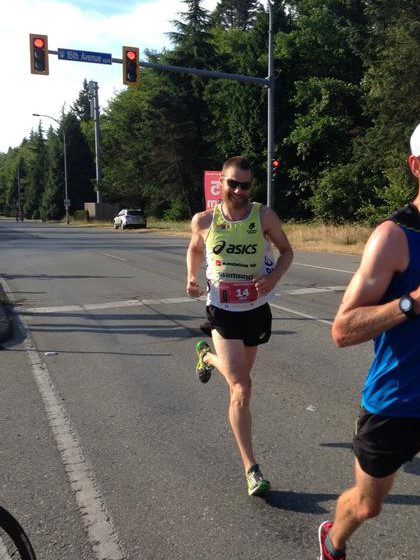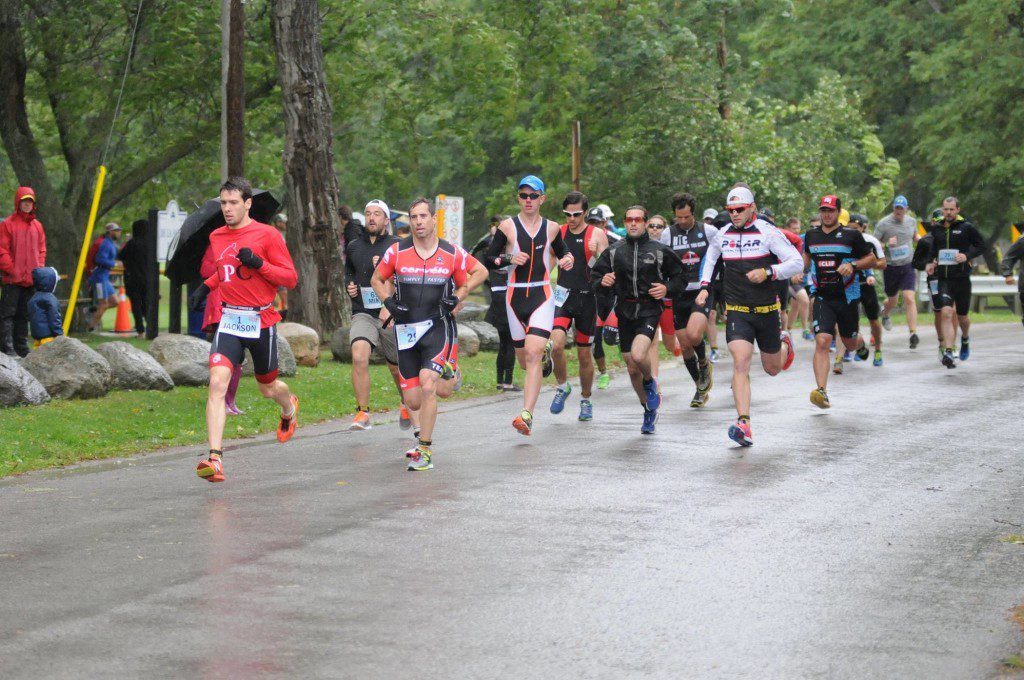Jeff Symonds on the importance of the B race

Lead up races or, B races, are a great way to prepare us for key events. I recommend doing multiple shorter events in the months leading up to your A race.
- The pressure.
You just can’t replicate the stress and pressure that racing brings in training. B races give you a great opportunity to become familiar with the nervousness and anxiety that racing brings so that you better handle it when your main event rolls around.
- You can always learn something.
This is the beauty of our sport. We can never truly master it (unless your name is Craig Alexander). Even the most experienced professionals don’t have everything figured out yet. There is always some variable (heat, wind, hills, strategy, tactics, adversity) that we can gain a better understanding of. There is no better place for learning something about triathlon and about yourself than races.
- Testing out your equipment.
Races are for you to get all your equipment sorted and ready. I can’t be the only person that has waited until the day before to zap strap a water bottle cage or figure out where to tape my Powergels? Lead up races force you to think everything through ahead of time and put it through the ultimate test. Better to find out if you water bottle cage acts like an ejection seat, or whether your tri suit chafes in all the wrong places, before your big day.
- Gain Motivation.
B races get you motivated to train hard and go the extra mile in your race preparation. It is also inspiring to see and talk to others that are experiencing the same ups and downs that you are on the way to their goals. Impossible tasks seem a lot more possible when you see and hear of others doing them.
- Find companions in your suffering.
One of the great things about our sport is that more often than not the people you have rivalries with end up being good friends. There is a certain camaradery that comes from pushing each other to your physical limits. My theory is that you are thinking about what is going on in their minds and respect their toughness and decisions. Either that or I am just a bit of a ‘chatty Cathy’ after races due to the “runners high.” Whatever the reason, the more you race the more great people you will meet.
- Learn from the pros.
What other sport do you have access to the top professionals in the sport? Take advantage of this! Ask them questions. Check out how they have set their bikes up. How much nutrition they are bringing. Watch how they conduct themselves in transition. What is their demeanor like? When do they arrive at the race? When do they put their wetsuit on? I race professionally and I still take advantage of this. In Geelong my bike was racked next to Craig Alexander and I took notice of how he was preparing and how he spoke to others. Ask them questions about their training, or their equipment – most would be happy to chat with you and give you some advice!
- Find out exactly where you are at in your training.
This is especially important after a long time away from racing. I also compare myself to my last race. If that race was three months ago or if you have missed a bunch of time due to injury then this comparison might not be relevant. A lot of negative energy can be created if you are falling short of where you think you should be. Racing resets that point. You know exactly where you are at and get a much clearer view of how to improve. Instead of failing to meet your unrealistic expectations, you will create a ton of positive energy knowing you are improving upon where you were. It’s not always bad. Sometimes you will far exceed your expectation and a new baseline that is higher than you thought. The feeling of surpassing your expectations in a lead up race is an incredible feeling. It will make you feel like everything is right in the world and you are ready to smash your next block of training or your A race!
Timeline:
Training for a full distance race? Try racing an Olympic distance four to three months before and a half distance three to two months prior.
Training for a half distance? Try racing a sprint distance three months before (great for some speed) and an Olympic distance two months to six weeks prior.
Training for an Olympic distance? Try racing a sprint two months to six weeks prior.
Training for your first ever triathlon? AWESOME! You’ve made a great decision! Try and watch a race for whatever distance you’ve signed up for a few months before your race. If possible, sign up and complete a Sprint or Tri-a-Tri race early on in your season (but with no expectation) to just have fun and get inspired!

